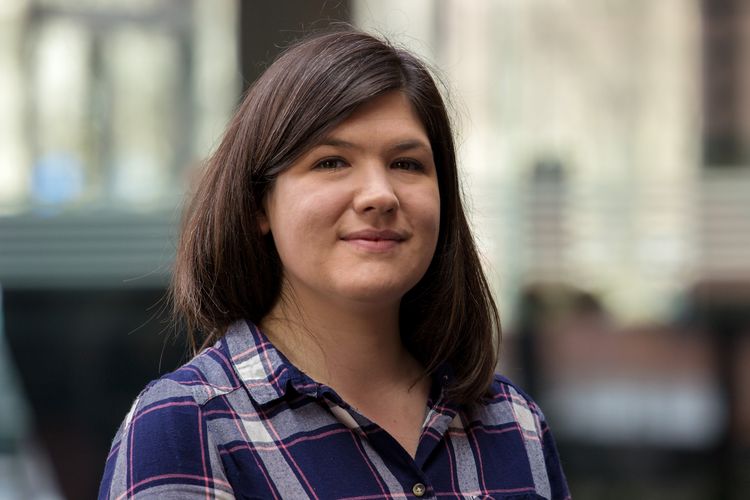Name: Helen Phillips
Role and field: Postdoctoral researcher. Macroecology and global change research.
My subject: Global analyses of earthworms
What I studied: Bachelor’s: Zoology; master’s: Ecology, Evolution and Conservation; PhD: Effects of land use and habitat fragmentation on local biodiversity
At Leipzig University since: November 2016
Question: What was your dissertation about and where did you complete it?
Helen Phillips: I did my PhD dissertation at Imperial College, London. But I was actually based at the Natural History Museum in London. My work focussed on using a global database of biodiversity records to investigate how land use change and habitat fragmentation affected biodiversity across the globe.
What made you choose Leipzig University – and iDiv – of all places?
I had been involved with a workshop at iDiv during my PhD, and I really enjoyed the atmosphere. In addition, lots of really cool papers were being produced by the researchers at iDiv, so it seemed like a very exciting place to be. At the end of my PhD, a postdoc position became available there which was ideal for me – taking my skills with large datasets and the analysis of them, and applying them to earthworms.
What’s so important about earthworms?
What’s not important about earthworms?! Earthworms are really cool and are really vital to our world. Earthworms provide us with many ecosystem functions and services. They help increase crop production, they help put nutrients back into the soil and they can even help regulate the climate to name just a few things. So, without us knowing it, they really improve the quality of our lives. Despite this, we actually know surprisingly little about them, especially across large scales. And this is problematic. If we don’t understand where they are and why they are there, we won’t know how our actions (for example, us changing the climate) may impact them and therefore the services they provide us. These are just some of the things we have been trying to understand through my work here.
What advice would you give to international researchers considering making the move to a place like Leipzig?
I think there are opportunities and challenges with any international move, so lots of the generic advice you would find online applies to Leipzig. But the one thing I think is specifically the case about Leipzig is that it really “has it all” within lots of different neighbourhoods. So I would suggest visiting a few times before you move (or, staying in temporary accommodation at the start) to get a feel for the different neighbourhoods and what they provide, before deciding where to rent for the long term.
What’s your favourite way to relax in Leipzig?
Leipzig has some amazing places to visit, particularly in summertime. I enjoy cycling through the Auwald and around the lakes in the south. And when it’s warm enough, going swimming in Cospudener See. There are also many restaurants and bars with great outdoor seating areas, so I often sit and play cards with friends in the evening. And I spend winter days going to saunas.
What does the future hold for you?
I am not sure exactly, but no doubt it will contain earthworms. And, hopefully eventually, a permanent research position, either in Germany or another country.
Interview conducted by Matthew Rockey.
































































